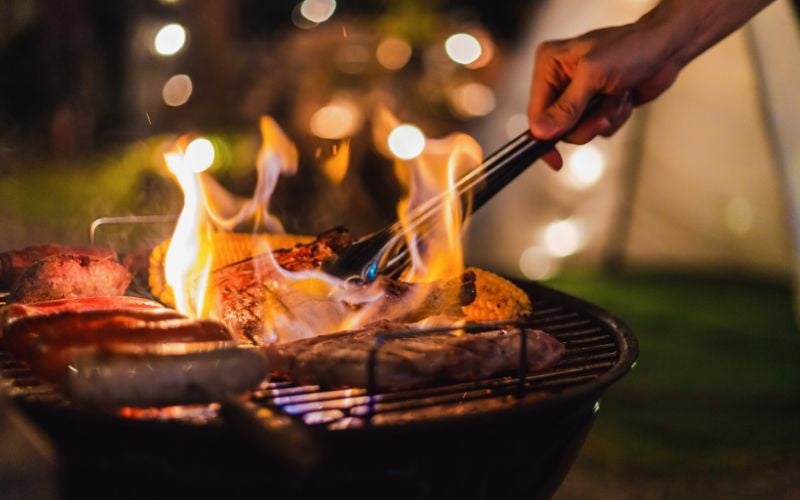For centuries, the Taj Mahal has loomed over Agra, India, as a symbol of beauty and power, a tribute to both romance and ruthlessness. While the love story behind the white marble monument, built between 1631 and 1648 by the Mughal Emperor Shah Jahan as a memorial tomb for his beloved late wife, is well known, a bloody legend also surrounds its construction. That legend lies at the heart of Rajiv Joseph’s ruminative two-hander “Guards at the Taj.
” Presented at ArtsWest in a co-production with Pratidhwani and directed by Samip Raval, “Guards” begins as, essentially, a workplace comedy about two buddies, one goofy and one serious. Before dawn on the day the Taj Mahal is unveiled after years under carefully concealed construction, two imperial guards — dreamy Babur (Varun Kainth) and his rule-following friend Humayun (Sumant Gupta) — are standing watch outside the wall surrounding the monument. While Babur is always running late and cannot for the life of him abide by the “no talking” rule, Humayun knows the rule book inside and out and can rattle off the punishment for many transgressions, up to and including the penalty for treason: death by elephant.

As they imagine what might be behind the wall, Humayun relays a horrible rumor he’s heard: As punishment for the architect’s request of the emperor that the 20,000 laborers who built the Taj Mahal be allowed to view it first, Shah Jahan instead has ordered that all 20,000 men’s hands be cut off, so that nothing as beautiful may ever be built again. (For the record, there is no historical evidence that this mass maiming actually happened.) As this rumor sinks in, Babur and Humayun realize that they, lowly guards that they are, are likely to be assigned the awful task.
In the next scene — the aftermath — we know for certain that they were. And so a day of unimaginable beauty becomes one of impossible horror. The ArtsWest stage (scenic design is by Lex Marcos) is ringed with brightly colored cushions, some of which are occupied by musicians playing tabla and sitar, the rest of which are open to audience members who choose that viewing experience.
The set’s clever rotating pieces moved us smoothly from location to location, though in certain lights, the gray finish looked like faux marble, and in combination with the purple LED strip lighting trimming the pieces, the look was unfortunately reminiscent of a luxe ‘80s bathroom. And for practical reasons, I’m sure, the gory event was designed more metaphorically than literally, which unfortunately kept a lid on the horror response. Parts of the "Guards" script rely heavily on the crutch of “references the audience will understand because we are in the future,” and I was ready to accuse Joseph of playwright-treason for such a crime, but he ultimately used it in such a clever, moving way that I called off the elephant.
Babur, dreaming up inventions, stumbles on an idea that we (in the audience, in the future) recognize will be the airplane. Humayun, trying his best to dream like his friend, comes up with an invention that sounds like something Wile E. Coyote would order from Acme, and to our modern ears, it’s a silly idea.
Ridiculous. But 400 years ago, both ideas were equally akin to magic, the stuff only of dreams. In this world ruled by blasphemy and sedition, power and servitude, there’s a painful divide between those who can imagine a better world and those who cannot.
After their heinous act, Babur unravels — dangerously, treasonously — while Humayun insists he was just doing his job. And later, he gets to tell Babur, they’re getting a huge promotion! The dream of any ladder-climber, seduced by proximity to power. Both in writing and in production, "Guards" drags a bit at the end, as the final scenes bleed indistinctly into one another.
Even the final scene — a coda that brings us back to an earlier, more innocent time in Babur and Humayun’s lives — lacks real tonal differentiation from preceding scenes. But the otherwise brisk evening, about ordinary people in extraordinary circumstances, is worth your time and attention. After all, that could be any of us, and we shouldn’t forget it.
.




















